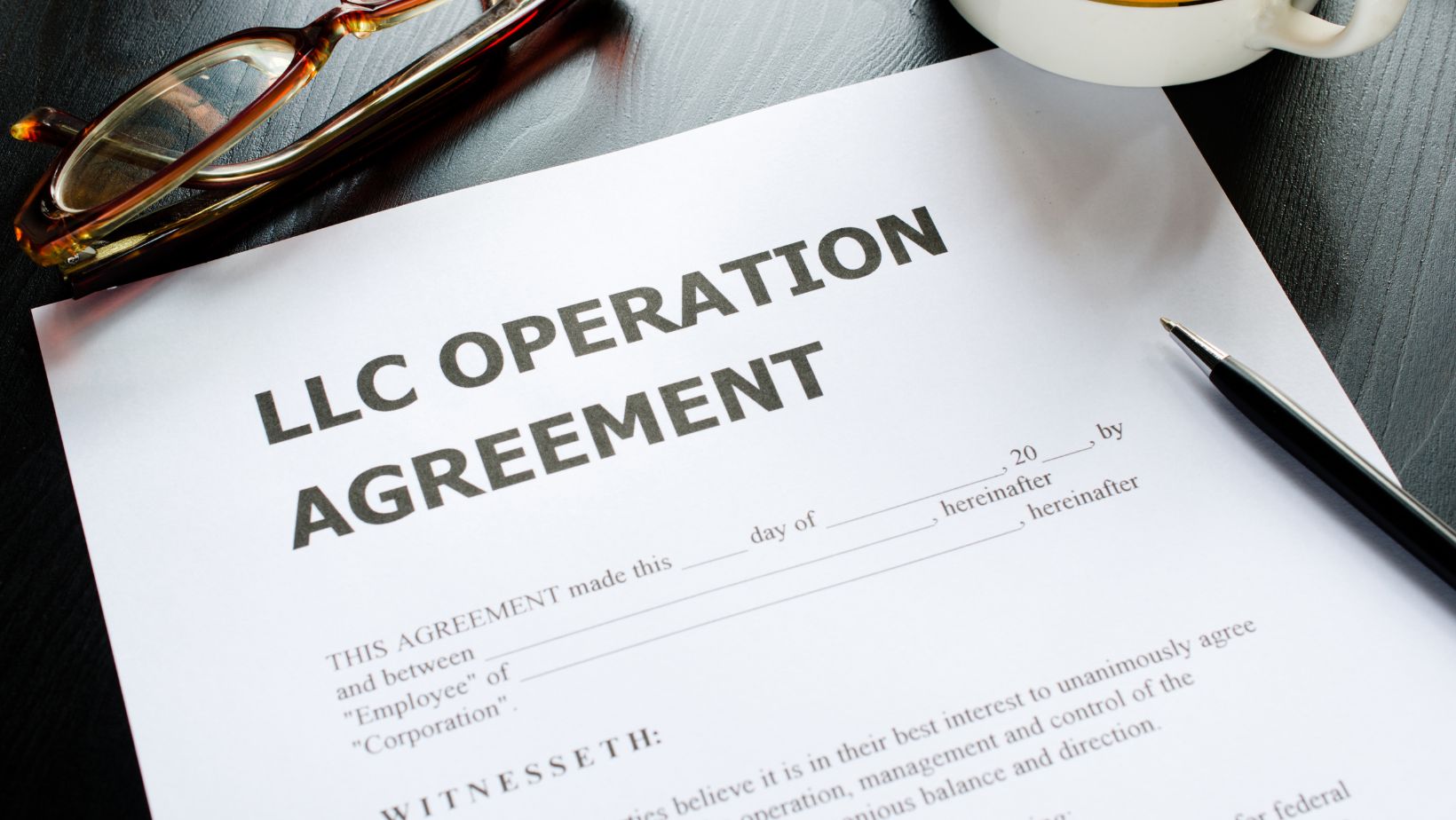
Table of Contents
ToggleWhen it comes to safeguarding personal assets while running a business, the choice of business structure plays a crucial role. Limited Liability Companies (LLCs) have gained popularity for their ability to provide protection to both the business owner and their assets. Understanding how this business structure can shield you from potential risks is essential for any entrepreneur.
LLCs offer a layer of protection by separating personal and business liabilities, ensuring that your personal assets are not at risk in case of business debts or legal issues. By forming an LLC, individuals can enjoy the benefits of limited liability, shielding their personal wealth from business-related obligations. This protective feature of LLCs makes them a preferred choice for many small business owners looking to mitigate risks and safeguard their hard-earned assets.
Understanding LLCs: What Are They?
Limited Liability Companies (LLCs) are a popular business structure due to their ability to shield personal assets from business liabilities. How LLCs Function as Business Entities: LLCs operate as a hybrid structure that combines the flexibility of partnerships with the limited liability of corporations. The Legal Structure of LLCs: In an LLC, owners are referred to as “members” and enjoy protection from personal liability for business debts. Forming an LLC offers numerous benefits for business owners looking to protect their assets while running a business.
Key Benefits of LLCs in Asset Protection
When it comes to safeguarding personal assets, LLCs stand out as a robust business structure choice for entrepreneurs. Understanding the key benefits of LLCs in asset protection is crucial for business owners seeking liability protection and asset security.
Liability Protection for Owners
LLCs provide a crucial layer of protection for business owners by separating personal assets from business liabilities. In the event of legal actions or debts incurred by the business, the personal assets of LLC owners are typically safeguarded. This separation ensures that the personal wealth and property of owners, or members, are not at risk due to business-related issues. Forming an LLC offers peace of mind to entrepreneurs, knowing that their personal assets are shielded from potential business risks and obligations.
Segregating Business from Personal Assets
One of the fundamental advantages of an LLC is the ability to segregate business assets from personal assets. By establishing clear boundaries between business finances and personal wealth, LLC owners can protect their individual assets in case of lawsuits, debts, or financial challenges faced by the business. This segregation is a critical aspect of asset protection, as it prevents personal assets from being used to satisfy business obligations. Iowa LLC owners can benefit significantly from this feature, as it ensures that their personal wealth remains intact even in challenging business situations.
The key benefits of LLCs in asset protection lie in their ability to offer liability protection for owners and segregate business assets from personal assets. Entrepreneurs, including those forming an Iowa LLC, can leverage the asset protection features of LLCs to secure their personal wealth and property, ultimately providing a secure foundation for their business endeavors.
Comparing LLCs with Other Business Structures
LLCs vs. Sole Proprietorships
When contrasting LLCs with sole proprietorships, it’s evident that forming an LLC offers numerous benefits for business owners. While a sole proprietorship is the simplest business structure, it lacks the asset protection provided by an LLC. In an Iowa LLC, personal assets are safeguarded from business liabilities, a feature that sole proprietorships do not offer. Sole proprietors are personally liable for all business debts, exposing their personal wealth to potential risks. In contrast, an Iowa LLC ensures that personal assets are distinct from business assets, reducing the risk to the owner’s wealth.
LLCs vs. Corporations
In the comparison between LLCs and corporations, the asset protection aspect stands out. Both LLCs and corporations offer limited liability to their owners, but there are differences in how they are taxed and managed. Iowa LLCs provide a flexible management structure and pass-through taxation, allowing owners to report business profits on their individual tax returns.

On the other hand, corporations have more formalities in terms of management and taxation. While corporations may offer certain tax benefits, forming an Iowa LLC can be a more straightforward option for entrepreneurs looking to protect their personal assets while enjoying operational flexibility.
Establishing an LLC: Steps and Considerations
Choosing the Right State for Formation
When establishing an LLC, selecting the appropriate state for formation is a crucial decision that can impact the business in various ways. Business owners should consider factors such as taxation, regulations, and asset protection laws when choosing the state in which to form their LLC. For instance, forming an Iowa LLC can offer specific advantages due to the state’s favorable laws regarding asset protection and business operations. Iowa provides a solid legal framework that can enhance the security of personal assets for business owners, making it an attractive option for entrepreneurs seeking to safeguard their wealth while enjoying the benefits of a well-structured business entity.
Necessary Legal Documents and Procedures
To establish an LLC successfully, there are several key legal documents and procedures that business owners must adhere to. These include drafting and filing articles of organization, creating an operating agreement, obtaining any required business licenses or permits, and complying with state-specific regulations for LLC formation. In the case of forming an Iowa LLC, entrepreneurs will need to ensure compliance with the state’s regulations and requirements to set up their business entity effectively. By following the necessary legal procedures and documentation guidelines, business owners can formalize their LLC structure, establish clear operational guidelines, and ensure legal compliance, laying a solid foundation for their business endeavors.
Maintaining Your LLC
Compliance Requirements
To maintain the protections afforded by your LLC structure, it’s crucial to adhere to various compliance requirements. Failing to meet these obligations could jeopardize the limited liability shield and expose personal assets to potential risks. Some common compliance tasks include:
- Annual Filings: Most states, including Iowa, require LLCs to file annual reports to update company information with the state authorities.
- Meeting Minutes: Documenting regular meetings and major decisions is essential for demonstrating that the LLC is operating as a separate entity from its owners.
- Financial Records: Keeping clear financial records that distinguish between personal and business expenses is crucial for maintaining the limited liability protection.
Ideal Practices for Ongoing Protection
In addition to meeting regulatory requirements, there are best practices that LLC owners can implement to enhance ongoing protection for their assets:

- Insurance Coverage: Consider obtaining appropriate insurance coverage, such as liability insurance, to further safeguard personal assets from potential lawsuits or claims against the LLC.
- Operating Agreement Reviews: Regularly review and update the operating agreement of the LLC to ensure that it accurately reflects the current structure, ownership interests, and decision-making processes.
- Asset Protection Strategies: Implement sound asset protection strategies, such as properly titling assets in the name of the LLC, to shield personal wealth from business-related liabilities.
These proactive measures not only help safeguard personal assets but also contribute to the long-term success and sustainability of the LLC structure. By staying compliant and following best practices, business owners can maximize the benefits of forming an LLC, particularly in Iowa, known for its favorable laws supporting asset protection for businesses.
Conclusion
LLCs stand out as a robust business structure that offers unparalleled protection for personal assets. By creating a distinct separation between personal and business liabilities, LLCs shield individuals from potential financial risks and legal entanglements. Entrepreneurs find solace in the safeguarding of their assets from business-related debts and legal disputes. The asset protection benefits of LLCs surpass those of sole proprietorships and corporations, making them a top choice for business owners seeking security and peace of mind. Upholding compliance requirements and implementing proactive asset protection strategies are essential for maintaining the integrity of an LLC and ensuring long-term success. With Iowa’s favorable laws supporting asset protection, LLCs emerge as a reliable and resilient business structure for safeguarding personal assets and fostering sustainable growth.















